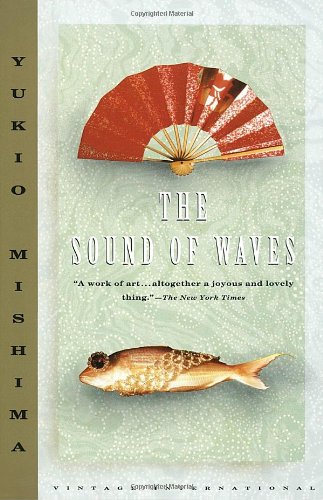All Nonfiction
- Bullying
- Books
- Academic
- Author Interviews
- Celebrity interviews
- College Articles
- College Essays
- Educator of the Year
- Heroes
- Interviews
- Memoir
- Personal Experience
- Sports
- Travel & Culture
All Opinions
- Bullying
- Current Events / Politics
- Discrimination
- Drugs / Alcohol / Smoking
- Entertainment / Celebrities
- Environment
- Love / Relationships
- Movies / Music / TV
- Pop Culture / Trends
- School / College
- Social Issues / Civics
- Spirituality / Religion
- Sports / Hobbies
All Hot Topics
- Bullying
- Community Service
- Environment
- Health
- Letters to the Editor
- Pride & Prejudice
- What Matters
- Back
Summer Guide
- Program Links
- Program Reviews
- Back
College Guide
- College Links
- College Reviews
- College Essays
- College Articles
- Back
The Sound of Waves by Yukio Mishima
The book The Sound of Waves by, Yukio Mishima is a coming of age story that tells the tale of two Japanese teenagers that fall in love on the small island of Uta-Jima. But, like many love stories, they aren’t allowed to be together. The story was well structured by Yukio Mishima, a Japanese man, and captured the essence of Shintoism. In the novel, Mishima uses aspects of the religion, such as the strong focus on nature, which is demonstrated by Shinji, the protagonist as he prays to the sea god regularly in the novel. Mishima does an excellent job with using the time period after World War II, in order to present Shinji as the man of the house, since his father died in the war. He is relied on by his mother and little brother, making his life focused on being a fisherman, in order to feed his family. Then, setting the story in motion, Hatsue, the beautiful daughter of a wealthy ship-owner, ends up falling in love with Shinji. Since Shinji’s family is poor while Hatsue’s is rich, complications ensue. Many trials and tribulations of their forbidden love is shown by the setting of Uta-Jima, the island that they live on. Since the island is small, gossip about their relationship spread like wildfire, causing Hatsue’s father to forbid her from seeing Shinji. Overall, the novel was very well organized and grasped hold of a very nature-based setting. Although Mishima’s writing was very unique, the only factor that set it apart from many other books and movies on forbidden love was the unique Japanese aspect. Otherwise, his story was similar to many other modern day stories on forbidden love in that the couple stayed together in the end. For example, in books such as The Twilight Saga and The Notebook, the couples stayed together at the end, after going through certain problems that would hinder their relationship. But, Mishima’s writing wasn’t as unique as stories such as Romeo and Juliet and Wuthering Heights. These stories were able to stand out of the crowd since the couples romance wasn’t cut short in a variety of ways. But, Mishima’s book ended in a very cliché manner, since the couple ended up together, happily, like many movies and books of modern day. If he had cut their romance short, he could’ve done it in a new way and created a standing classic, like Wuthering Heights. In conclusion, The Sound of Waves is unique in certain aspects, but his ending included a very familiar tune to other love stories of today.
Similar Articles
JOIN THE DISCUSSION
This article has 1 comment.

